- Home
- Kathryn Lasky
The Crossing Page 9
The Crossing Read online
Page 9
“Mrs. Elwood, I must ask you to mind your tongue,” Mr. Marston said, striding into the parlor.
“I speak the truth. I am devoted to Mrs. Hawley as you well know.” She took a step toward the butler, whose face had turned white. “But Mr. Marston” — she spoke gently now — “you know with her coming back our life is going to be hell! She’s mad!”
Just at that moment the doorbell rang.
“Good grief, it’s them!” Mr. Marston said. “All of you, in your places,” he snapped. The servants rushed to the entrance foyer and lined up in two rows, the prescribed order for receiving the master of the house.
“C’mon, Ettie. Stiff upper lip,” Clarice said. Taking her sister’s hand, she dragged Ettie toward the front door so that when it opened they would be the first to greet their parents and Lila, who had been tucked away in an asylum for more than a year.
Her face was pinched and she was quite pale. She stood very still and said not a single word as she slid her eyes about the faces gathered to meet her. A vein crawled up her temple like a fat worm and throbbed. Mr. Marston took a step toward her. “Welcome home, Miss Lila. We are so happy to see you again.”
She did not look at him but turned her head and settled her gaze on Ettie. “Are you, now?” she said in a barely audible voice.
The nurse who stood beside Lila gave a smile and, then turning to her charge, said, “Aren’t you going to introduce me to your sisters, dear?”
A brittle smile cracked Lila’s face. “This is Miss Doyle. She is my nurse.” The smile never seemed to reach her eyes, which had a flattened look bereft of any light. “She has been ordered by Mummy and Daddy not to wear a uniform. She’s just my ‘friend,’ right, Miss Doyle?” There was something chilling about the way Lila said the word friend. “She still looks rather starched, though, doesn’t she? The uniform seems implied.”
“I am your friend, dear,” Miss Doyle responded.
“You are paid to be my friend….” Lila paused. “Quite handsomely, I think. Perhaps even more than Mr. Marston.”
“Lila!” her father gasped.
“Oh, I forgot. Speaking of money is vulgar. I shan’t say another word.”
Ettie clutched Clarice’s hand harder and felt a darkness rising in her like a flood tide. She shifted her eyes away. She couldn’t stand to look at her sister. The madness had begun already. She felt it seeping into the house. She wanted to run, flee. Lila’s eyes flinched. She began to walk toward the two huge vases that stood nearly six feet tall in the entryway.
These were the Kirayhasi vases that always accompanied the Hawleys to their various homes — Gladrock, their estate in Bar Harbor; the apartment in Paris; and number 18 Louisburg Square, Boston. Seventeen times the vases had crossed the Atlantic. And it was in front of one of the vases that Stannish Whitman Wheeler had posed the Hawley daughters for their portrait. It was during the time of the painting of the portrait that Lila had had her first bout of serious illness. She had been sent away to what they referred to as a sanitarium and then returned after two months. The painting had not been finished when she left, and in an effort to complete it Wheeler had posed Hannah in the thick shadows leaning against one of the vases. It was the exact spot in which Wheeler had put Lila. He had explained that the foreground had been completed where Ettie and Clarice posed, and the background was mostly complete, but he needed a stand-in figure for Lila just so he could get the shadows right.
When Lila had returned and the painting was unveiled at Gladrock, she seemed to sense that she had been replaced. Despite the thick shadows, she detected a ghost of Hannah, of whom she was insanely jealous. That night after the party to unveil the portrait, Lila sneaked downstairs, and with a kitchen knife destroyed the painting, ripping it down the center. She had then tried to attack Hannah, who had fled — fled and jumped into the sea. It was on that night that Hannah had crossed over. The Hawleys, like many other families who had mentally disturbed relatives, kept it a secret. A variety of euphemisms were often used, such as nervous fatigue or emotional fragility. However, none could come near to disclosing the violence and peculiar brutality of Lila. She was anything but fragile.
Except for Ettie, who found out much later, no one knew of Hannah’s transformation. But there was one other thing that had happened on the night of Lila’s attack. Ettie had thrown a rock at Jade, Lila’s demonic cat. It was almost as if that cat were Lila’s familiar. Their eyes were exactly the same color — jade — for which the cat had been named. The cat had jumped on Hannah and clawed deep gouges in her face, and then both Lila and the cat, like two demon spirits, chased her into the night. Ettie had followed, and picking up a rock had heaved it at the cat’s head and succeeded in killing her just at the moment when Hannah had dived into the sea and crossed over to discover her new life. So it was one life lost and one gained. Or at least that was how Ettie thought of it. Would her sister remember that Jade had died? Was the image of that cat limp on the beach at Gladrock burned into her feverish mind? Her parents had assured Ettie that the doctor had told them that Lila remembered nothing of that terrible night.
Hannah had returned and worked for the Hawleys for almost another year and then gave her notice. It was, however, on that night when Lila had attacked the painting and then Hannah that the vase had inexplicably shattered. It actually shattered the moment that Hannah dived from the lavender rock into the sea.
Lila began to walk toward the two vases; the one that had been repaired stood to the right. Her eyes settled on it. She stood in front of it for more than a minute. The tension in the air was thick. One could have heard a pin drop. Lila turned around sharply. “It’s cracked,” she announced. Ettie caught the look on her mother’s face. Edwina Hawley appeared as if she might shatter. Ettie felt a surge of love for her mother. How can Lila do this? She let go of Clarice’s hand and walked up to her sister, standing in front of her for several seconds before speaking. “Lila, on the night you fell ill the vase shattered.” She heard her mother inhale sharply. Ettie had wanted to say attack, but when she heard that little gasp from her mother she was glad she hadn’t. “We’re not sure what happened. There was a lot of confusion that night.”
“Oh, yes, so much confusion …” Lila paused, looked about the drawing room, then fixed her gaze on the servants. “And what was her name — the scullery girl — Hannah? Yes, that was it. She is no longer here?”
“No.” Mrs. Hawley stepped forward. “No, she left.” Her voice was shaky.
Lila lifted her chin slightly and sniffed. “Dismissed, I suppose.”
“No!” Ettie said loudly. “She left. She was not dismissed. And when she left she was no longer a scullery girl but an upstairs maid.”
“Well, aren’t we all happy she’s not upstairs anymore?” Lila said this so softly and directly to Ettie that the others could not hear her at all.
“We?” Ettie said in a whisper, and just shook her head. It was never a good sign when Lila said we. We made the air shiver. A shudder passed through Ettie as if someone were walking on her grave. Violence had entered the quiet and orderly domain of the Hawley household, and there was no turning back.
Stannish had returned from New York a few hours before and had come to Hannah’s apartment bearing a lovely gift.
“Something for your trousseau!” he announced. He watched her carefully as she lifted the lid from the box and removed the layers of tissue paper. It was a lovely silk paisley shawl.
“Oh, it’s beautiful, Stannish.”
“I bought it to match the color of your hair now that it’s …,” he trailed off as his lips twisted into a scowl. “By Jove, you’ve been swimming, my dear, haven’t you?” He had leapt up and taken a tendril of her hair. “The dye hasn’t held, and the color is now … now like … like rust,” he said with distaste.
“Just once or twice,” Hannah answered, her voice trembling.
“We cannot have lies between us,” Stannish said in the tone one might use to admonish a small child.
Hannah shut her eyes for a moment. She felt herself grow still.
“You are right. We cannot have lies between us.” Her voice was surprisingly calm, and she looked Stannish straight in the eye.
“There! You understand!” he said, almost triumphantly, as he grabbed her hands. “So you won’t lie anymore.”
“No, I’ll tell the truth. Whenever I go swimming I shall tell you.”
He flung down her hands so violently that she almost staggered from the force. He was strong. Strong in the way mer were strong powering through a wave, but he had not been in the sea for years. Yet he still seemed to have a great deal of that residual strength.
“That hurt, Stannish!” For the first time ever, she felt frightened by Stannish. It wasn’t just his physical strength, but the way he made it feel as if the walls were closing in around her.
“You are hurting me. I have the power to provide you with a magnificent life —”
She interrupted him. “But why is it always me who has to give things up?”
“I am an artist. I had to give it up to become an artist, Hannah, so I could follow my passion.”
“But aren’t I your passion?”
“Of course you are. But you cannot have it both ways, Hannah.”
“Listen to me, Stannish. I think we could. You said you wanted to paint more landscapes, not just portraits —”
He cut her off. “Are you really that stupid?” he spat.
“How dare you call me stupid!” Her voice dropped, a deadly coldness tinged every word. “I am not stupid. I am what I am — mer. And I think I could live on both land and sea. My mother did.”
“But then she died. In a shipwreck. She drowned.”
“I don’t think she drowned. I’ve thought about this, Stannish. I think —”
“Don’t think, Hannah!” he thundered. “Girls get in trouble when they think.”
This last statement took her breath away. What have I become? Then something hardened in her. She would show him. She would show him that she could live in both worlds. Before she gave him up and before she gave up the sea, she would show him if it was the last thing she ever did. But he would be watching her like a hawk between now and the time they sailed. She would have to resist the sea for now. She could do it. She might even have to wait until they got to the Continent. But she had a plan once they got to England, to Somerset, on the southwest coast, where he was supposed to paint a portrait of the new Baroness Pynte. The fantasy life she’d envisioned for them was fading, replaced by a far grimmer reality. But she had no choice.
WHEN ETTIE THOUGHT of Cambridge she thought of clanging bells. The bells in the tower of Memorial Hall, the Gothic edifice honoring the victims of the Civil War, were tolling the half hour when she arrived, and soon the chimes marking the hour would ring out from St. Paul’s, just outside the Harvard Yard, on Bow Street. There would be throughout the day slightly more distant anonymous bells that would peal at odd times. None of these seemed particularly synchronized. Ettie mused that there was a position crying, or pealing, for employment — a keeper of the chimes. Someone who would organize time and tollings that summoned folks to vespers or prayer and some to signal that a class period was over and a new one would soon begin. Add to this cacophony the jingle of harness bells as carters drove drays loaded with coops of clucking chickens toward East Cambridge or perhaps a book wagon loaded with volumes being transported to one of the half dozen or more Harvard libraries. There was, in short, a veritable symphony of tingles and tollings on this foggy morning. It seemed to Ettie as though she were walking through a forest of chimes. It had not been hard for her at all to get away in the less than two days since Lila had arrived. For the blessing of her fragile sister’s return was that everyone appeared to be walking on eggshells and were completely consumed with not upsetting her. Therefore Ettie was the last thing on anyone’s minds.
For Ettie, Cambridge was a fascinating wilderness so different from her orderly world across the river. It was in one sense trackless — a person could wind up on the steps of a spooky Harvard museum filled with exotic dead stuffed animals and the fossil bones from unimaginably ancient times or find herself in the thick, smoky air of a Cambridge coffeehouse where unchaperoned Radcliffe girls holding cigarettes at sophisticated angles drank coffee and mingled with Harvard boys. Ettie felt like a foreigner. She was too young, too short, and too well dressed — though she tried to look slightly shabby, or so she thought. She had found an old shawl that needed patching that Florrie had not yet got to, and as soon as she left the house she had removed her bonnet — Radcliffe girls did not wear bonnets! But Hannah does, she thought as she spied her huddled in a corner of the coffeehouse with May.
Hannah looked up as Ettie approached their table. “Ettie, is everything all right?”
Ettie sighed, sank into a chair, and gave a short account of what the Hawley househould had been like since Lila’s return.
“How did you ever get away?” Hannah asked.
“It’s not hard. Everyone is so concerned with Lila that they have little time to wonder about me. I called my uncles and asked them to say that I was going with them to the art museum.”
“And they agreed?” Hannah asked.
“Of course they did. I told you. They are working very hard to help Lucy …” She paused, then continued. “But don’t worry, they don’t know about either of you. The good news is that they have engaged an excellent lawyer. Now, what did you find at Gore Library, May?” Ettie asked.
She slid her eyes toward the table next to theirs. A young woman sat with a book. She wore a colorful silk bandeau on her head. It was so sophisticated looking, and with her tiny violet-tinted spectacles she reminded Ettie of some sort of exotic creature, a bizarre insect of some sort. Perhaps an Amazonian beetle like the one Uncle Bark had in his collection. Not that these beetles wore spectacles. But they were very shiny and colorful. Ettie had been trying to make out the title of the book for the last five minutes. The young woman finally closed it to take a sip of her coffee and stub out her cigarette. Calculus of a Single Variable: Early Transcendental Functions. Goodness, she thought. Is it math or philosophy? She knew about the Transcendentalists and all those people like Emerson who had lived out in Concord. How exciting that this girl was studying both! And then a young man came up and kissed her full on the lips in front of everyone. I have to go to Radcliffe! Ettie thought.
“Ettie,” May said sharply. “Are you paying attention?”
“Wh-what?”
“I was just saying that what I found at Gore Library has to be believed.”
“Yes.” Hannah nodded, and her eyes seemed to suddenly tear up.
“Pictures of your mother? I want to see them,” Ettie said emphatically.
“And our aunt, I think,” May said.
“All right, let’s go,” Ettie replied eagerly.
May and Hannah began to get up.
“Just one second,” Ettie said, and then grasped Hannah’s hand.
“What is it?”
“Hannah, are you still planning to marry Stannish Wheeler?”
Hannah went rigid, and she tore her eyes from Ettie. “Not right away, Ettie. What’s important now is to help Lucy.” May nodded in agreement.
“But are you?” Ettie demanded.
Hannah and May exchanged glances. Ettie could be like a dog with a bone in its teeth. They knew they could not budge her until Hannah had answered her question.
“I am not making any decision until we get to England.”
“When do you sail?”
“Two weeks.”
“On the Leonidas?”
“Yes, why?”
“That’s when we sail. Same ship. It stops in England first and then goes across the channel to France.”
Hannah leaned forward. “Don’t worry. Our paths will never cross.”
“Why not? We’re on the same ship, Hannah. It’s not like being in the same city.”
“Stannis
h will be in first class.”
“And you?” May and Ettie both said.
“Well, we’re not married, so we can’t share a cabin. Really!” She blushed.
“But where is your cabin?” Ettie asked.
“Steerage,” Hannah said softly, and ducked her head.
“So he goes first class and you go bottom class — steerage. How gallant!” Ettie sniffed.
“Look, it doesn’t matter to me. Money is tight. There are a few commissions where the people have been late in paying.” Ettie felt May kick her under the table. The message was clear. Drop it!
“Let’s go now,” Ettie said, getting up. But just before she walked out the door she raced back to the young woman at the table. “I love your bandeau. The fabric is so beautiful. Where did you get it?” The young woman looked up at her through the violet-tinted spectacles.
“Smyrna.”
Smyrna, Ettie thought. She said it just as one would say Manchester or Cape Cod or Brookline, for Lordy’s sake. Just like that she had tossed out the name as if it were a nearby suburb.
Twenty minutes later in Gore Library on the third floor Ettie lifted her eyes from the engravings and looked at Hannah’s and May’s faces. “The resemblance! It’s — it’s astonishing. You have a mother and an aunt!” Both girls nodded. “Where do you think this place is?” She pointed to the rock where the two mer sisters were posed. There were cliffs in the background.
“It doesn’t look like any place I know on the coast,” May said.
“Nor I,” Hannah offered.
“You think it could be across?”
“Yes, the other side of the Atlantic. It makes sense,” May said. “The HMS Resolute was a British-registered ship. Now the challenge is to find out where this N.B. Lawrence lives.”
“But if he lives in England …,” Ettie said with a sigh.
“We don’t think so. He had worked both here and abroad for many years. But the last place he worked was in New Haven, at Yale. That much we know,” May said. “Hugh has hired a Pinkerton detective to find him.”

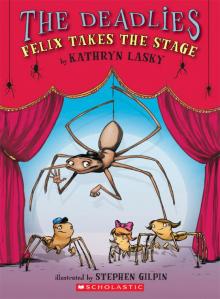 Felix Takes the Stage
Felix Takes the Stage Lucy
Lucy Lone Wolf
Lone Wolf Broken Song
Broken Song The Shattering
The Shattering The Crossing
The Crossing May
May Chasing Orion
Chasing Orion Star Rise
Star Rise The River of Wind
The River of Wind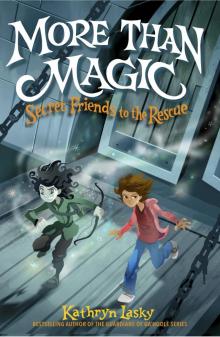 More Than Magic
More Than Magic Born to Rule
Born to Rule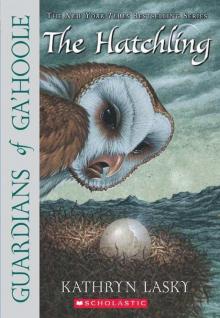 The Hatchling
The Hatchling The Rescue
The Rescue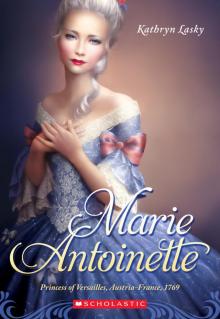 Marie Antoinette: Princess of Versailles, Austria - France, 1769
Marie Antoinette: Princess of Versailles, Austria - France, 1769 The War of the Ember
The War of the Ember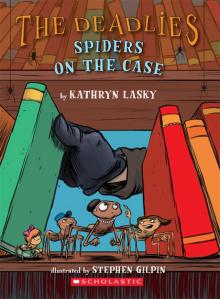 Spiders on the Case
Spiders on the Case To Be a King
To Be a King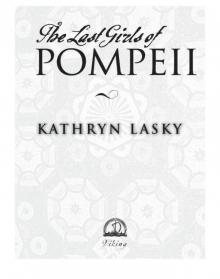 The Last Girls of Pompeii
The Last Girls of Pompeii The Outcast
The Outcast Exile
Exile Night Witches
Night Witches Spirit Wolf
Spirit Wolf The Quest of the Cubs
The Quest of the Cubs Frost Wolf
Frost Wolf The Keepers of the Keys
The Keepers of the Keys The Extra
The Extra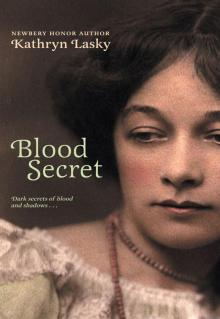 Blood Secret
Blood Secret Watch Wolf
Watch Wolf Blazing West, the Journal of Augustus Pelletier, the Lewis and Clark Expedition
Blazing West, the Journal of Augustus Pelletier, the Lewis and Clark Expedition The Capture
The Capture The Burning
The Burning The Journey
The Journey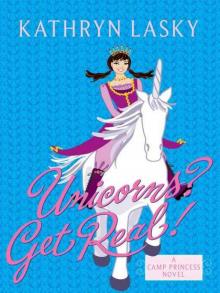 Unicorns? Get Real!
Unicorns? Get Real! The Escape
The Escape Star Wolf
Star Wolf Ashes
Ashes Wild Blood
Wild Blood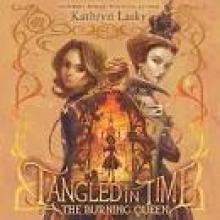 Tangled in Time 2
Tangled in Time 2 The Siege
The Siege Hannah
Hannah Elizabeth
Elizabeth A Journey to the New World
A Journey to the New World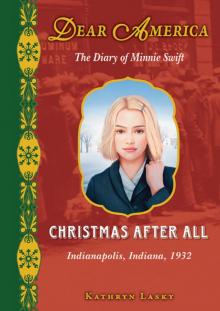 Christmas After All
Christmas After All Mary Queen of Scots
Mary Queen of Scots